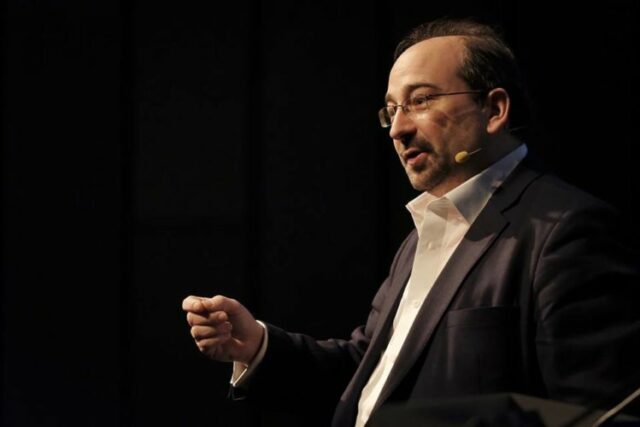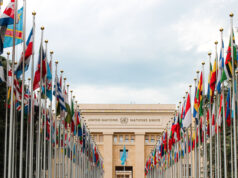INTERVIEW with Michael Green, Chief Executive Officer, Social Progress Imperative. For further expert opinions please use the question-level hyperlink.
| Do you expect the pandemic to have a tailwind or rather a headwind effect on the low-carbon and SDG-aligned transition pace, taking into account the concerns expressed by some market participants in regard to possible funding cuts and the risk of unsustainable recovery measures?
The impact of Covid on the SDG agenda is up to us. If we respond to this crisis by doubling-down on a growth at all costs agenda then we’ll see sustainability and inclusion set back even further. If we can seize this opportunity to build forward better, focusing on sustainable and inclusive growth, we can get the SDGs back on track. And we have to choose the latter.
Covid is proof that supposedly non-economic risks can have huge economic impacts – we will only have long term economic growth if that growth is sustainable and inclusive.
We need to put inclusion and sustainability at the heart of the recovery, for their own sake and because these factors will build resiliency for future shocks. Too often the debate is presented as a binary choice between health and the economy. But the choices we make about how we reopen economies, which businesses we support, and how we invest public funds will have a huge impact on the quality of the recovery. SDG investing is a way to target some of the most critical sectors and countries to build an inclusive, sustainable and resilient recovery.
| The Social Progress Imperative recently released the 2020 Social Progress Index results revealing that, if current trends continue, the world will not achieve the SDGs until 2082. What are the key drivers of the negative trends addressed in the report and the related opportunities for the investment industry?
The big problem that we need to address to turn this around is that progress is uneven. There is good news here: progress is happening. It is just not widespread enough. This uneven progress manifests itself in two ways. First, there are areas where the world is stagnant or going backwards such as rights, inclusion and the environment. To accelerate progress we have to turn it around so that we are going in the right direction. Second, some countries are stalled or even going backwards: the United States, Brazil and Hungary are the worst performers over the last ten years. If countries like these start progressing and others that are not improving fast enough, like Nigeria or the Philippines, accelerate, then the SDGs are much more achievable.
| Could you please comment on further key findings of the report you’d like to draw ESG investing professionals’ attention to?
One of the most striking findings is that, once you control for differences in GDP, countries that perform better on issues like rights, inclusion etc., seem to have handled the Covid crisis better than their peers. Such ‘soft’ issues can get ignored in the ESG and SDG debates, so this is a reminder that there is real materiality in issues like rights and inclusion.
| How can investors best spot and avoid SDG-washing and related misleading practices?
The SDGs present such a broad agenda and so much data is missing that there is huge scope for incomplete or misleading reporting. Even with the best will in the world, there is real problem with businesses and investors taking an à la carte approach, just picking one or two SDGs that are easiest to report against to focus on. That is too easy and misses the point that SDGs is about a complete package. It is also too easy to focus on activities and inputs rather than outcomes. That is why we have applied the Social Progress Index to provide a benchmark for countries, cities and regions that is comprehensive and credible across the whole SDG agenda.
| brief bio
Michael Green is Chief Executive Officer of the Social Progress Imperative. An economist by training, he is co-author (with Matthew Bishop) of Philanthrocapitalism: How Giving Can Save the World and The Road from Ruin: A New Capitalism for a Big Society. Previously Michael served as a senior official in the U.K. Government’s Department for International Development.
| about
The Social Progress Imperative is a US-based nonprofit exclusively focused on redefining how the world measures success, putting things that matter to people’s lives at the top of the agenda. Established in 2012, they strive to improve the lives of people around the world by fostering research and knowledge sharing on social progress and using data to catalyze action. It developed the Social Progress Index to measure on how well countries and communities convert their resources into social and environmental outcomes that impact the lives of people every day— like health, safety, education, rights and opportunity. Empowering decision makers and everyday citizens with this hard data and vital new insight allows them to understand precisely how people are really living and who is being left behind.
The just released 2020 Social Progress Index measures and ranks the social and environmental performance of more than 160 countries using more than 80,000 pieces of data. Explore the data at www.socialprogress.org.








